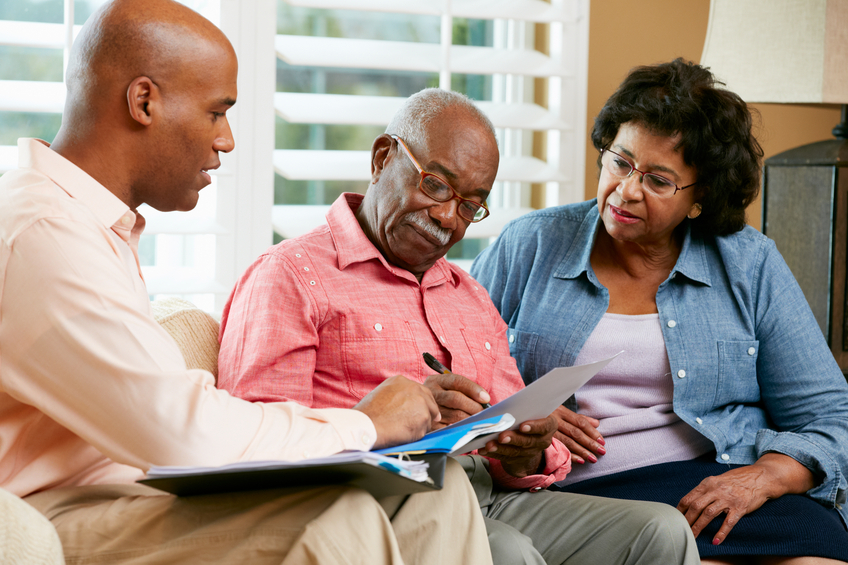CHICAGO, IL – Nursing home residents deserve to age with dignity; but unfortunately, some fall victim to horrific acts of abuse and neglect. Many times, nursing home abuse or neglect often goes unreported due to fear, embarrassment, or because a resident is unable to communicate what they need to. If you suspect your loved one is suffering from abuse or neglect at the hands of a nursing home facility, advocate for them and report it immediately to keep them safe.
How to Report Nursing Home Abuse
Nursing home abuse is an all too common problem that leaves elders emotionally scarred, badly injured, or be left with nothing financially. In some extreme cases, it may even contribute to their death.
Incidents of abuse may stem from poorly trained staff who lash out at residents or fail to meet their needs, such as dietary needs or bathing them. Aggressive nursing home residents can harm others if a staff doesn’t intervene.
As of 2018, 52 million people in the United States were over the age of 65. Nearly 1 in 10 of these people suffered from elder abuse each year. To put this into perspective, only 1 out of 24 elder abuse cases are actually reported to authorities (New York State Office of Children and Family Services).
If you loved one is being abused, or you suspect they are, you can report the abuse by contacting:
- Local police or law enforcement
- Long-term care Ombudsmen
- Medical experts, such as doctors or nurses
- Nursing home administrators
Other resources you can report nursing home abuse to:
- Senior HelpLine
- Illinois Department of Public Health
- Healthcare and Family Services for Supportive Living Facility Complaints
- Complaint Hotline: (800) 226-0768, Monday – Friday 8:00 AM – 5:00 PM
- Illinois State Police Medicaid Fraud Unit
- To report Medicaid Fraud, Abuse, or Neglect, call (888) 557-9503
Where to Report Nursing Home Abuse
Healthcare professionals such as doctors, nurses, and social workers are required by law to report nursing home abuse. Therefore, families do not need to wait for a professional to report nursing home abuse. The National Institute on Aging (NIA) recommends to immediately report any signs of abuse.
Report to Local Authorities
The fastest and most important way to report nursing home abuse is to call 911. The NIA recommends calling 911 immediately if an elder is in life-threatening danger.
911 is a great place to start for a few reasons: you know you will get an immediate response that allows medical authorities to treat a victim of nursing home abuse as quick as possible. In addition, it notifies the police that nursing home abuse may be happening within the facility.
However, if their life is not in life-threatening danger, there may be more appropriate routes to report nursing home abuse.
Long-Term Care Ombudsman Program
Another great option to report nursing home abuse to is your local long-term care Ombudsman. Ombudsmen act as advocates for nursing home residents by helping them address complaints with facility and staff members.
A long-term care Ombudsman: informs residents about new changes in nursing home laws, listens to the concerns of the patient and/or their family, protects residents through legal or administrative action, and provides information regarding different long-term care services.
For those who live in Illinois, you can check out the long-term care Ombudsman program here.
Families can find their long-term care Ombudsman through the National Long-Term Care Ombudsman Resource Center.
Doctors, Nurses, or other Medical Experts
By reporting nursing home abuse to doctors, nurses, or other healthcare professionals, they are legally required to report the abuse to authorities. They can also determine if a nursing home resident’s injury was from suspected abuse or an accident.
Want to Confidentially Report Nursing Home Abuse?
Nursing home reports can remain confidential, unless consent is given otherwise. Nursing home abuse often goes underreported because residents are afraid of what will happen if they speak out and treat them worse.
Giving victims the option to anonymously report their abuse, while also addressing the issue of abuse.
Signs of Nursing Home Abuse
Common signs of nursing home abuse may include:
- Bruising or bleeding
- Bed sores or pressure ulcers
- Unexplained financial transactions
- Negative changes in the resident’s mood or behavior
- Unexplained sickness or infections
Any behavior you observe that may look suspicious, write down and take note of it. If you notice any injuries, it’s important to document this, as well, and take pictures of the injuries. Ask residents or other witnesses who saw or knew of the abuse to make a statement to substantiate your claim.
Contact a Nursing Home Abuse Attorney in Chicago, Illinois
After alerting the authorities, it’s important to stay diligent. To ensure a nursing home residents safety after the abuse, follow up on the proper care and support so they’re able to recover from this tragic incident and follow up with the investigation. It’s also important to contact an experience nursing home abuse attorney who can help take some of the burden off your shoulders while you and your loved one recover.
The Dinizulu Law Group has been helping the Chicagoland and Illinois communities holding nursing home facilities, administrators, and staff accountable for the abuse and neglect our clients have unfortunately endured. Our attorneys have the experience, knowledge, and resources to hold your loved one’s nursing home facility responsible. Call our office today for a free consultation at (312) 384-1920 or visit our website for additional information.



